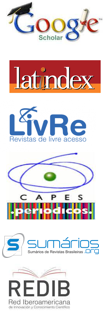Fake News em Tempos de Pandemia da Covid-19: um Olhar Sobre o Comportamento Acadêmico
DOI:
https://doi.org/10.17921/2447-8733.2023v24n1p164-170Resumo
Juntamente com a pandemia da COVID-19 surgiu uma infodemia, principalmente de fake news, gerando caos, desordem social e desinformação. Diante disso, o objetivo deste estudo foi realizar um diagnóstico sobre a conduta acadêmica frente às fake news relacionadas à pandemia da COVID-19, buscando associar o perfil dos participantes da pesquisa e aspectos do consumo e compartilhamento das fake news. O público-alvo neste estudo foram ingressos em cursos de graduação, pós-graduandos, professores e técnico-administrativos de várias instituições de ensino regionais, com diferentes faixas etárias e áreas de formação. A coleta de dados foi por meio de um questionário elaborado na plataforma Google Forms, cujas informações obtidas foram analisadas quali-quantativamente. A maioria dos informantes alegou não ter divulgado fake news sobre a pandemia e que, antes de compartilhar, refutar e/ou debater sobre a mensagem, consultava a confiabilidade da fonte. Alguns, porém, devido ao déficit no letramento digital, não possuíam a habilidade em consultar fontes confiáveis, tornando-se apenas consumidores passivos e disseminadores de informação, geralmente, inverídicas. Diante disso, sugerem-se a promoção de políticas públicas voltadas para o letramento digital da população em todos os níveis de ensino e maiores investimentos em ações acadêmico-científicas de Popularização da Ciência e Divulgação Científica para o combate às fake news.
Palavras-chave: Ensino Superior. Infodemia. Letramento Digital. Novo Coronavírus.
Abstract
Along with the pandemic of COVID-19, an “infodemic” has also emerged, mainly of fake-news, generating chaos, social disorder and misinformation. Therefore, the goal of this study was to develop a diagnosis on the academic conduct in face of fake-news related to COVID-19 seeking to associate the profile of research participants and aspects of consumption and sharing of fake-news. The target audience in this study are those enrolled in undergraduate and graduate courses, professors and administrative technicians from various regional educational institutions, with different age groups and areas of training. Data collection was carried out through an on line inquiry form whose information was analyzed qualitatively and quantitatively. Most informants claimed not to have disseminated fake-news about the pandemic and that they consulted the reliability of the source before sharing, refuting and/or debating the message. Some, however, due to the deficit in digital literacy, did not have the ability to consult reliable sources, becoming only passive consumers and disseminators of information that was usually untrue. In view of this, we suggest the promotion of public policies aimed at the digital literacy of the population at all levels of education and greater investments in academic-scientific actions for the popularization of science and scientific dissemination to combat fake-news.
Keywords: Higher Education. Infodemic. Digital Literacy. New Coronavirus.
Downloads
Publicado
Como Citar
Edição
Seção
Licença
Copyright (c) 2023 Revista de Ensino, Educação e Ciências Humanas

Este trabalho está licenciado sob uma licença Creative Commons Attribution-NonCommercial-NoDerivatives 4.0 International License.


